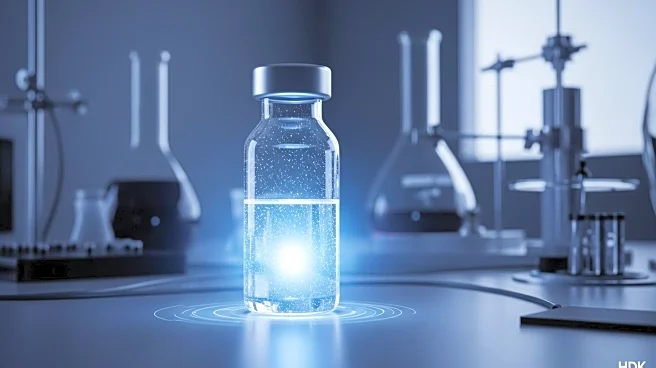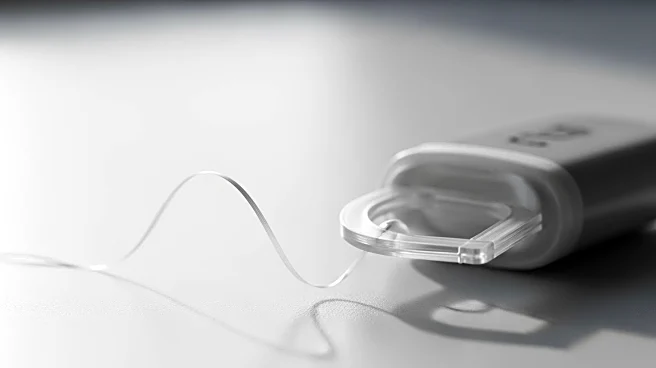What's Happening?
Kashiv Biosciences has announced the submission of a Biologics License Application (BLA) to the U.S. Food and Drug Administration (FDA) for ADL-018, a proposed biosimilar to XOLAIR® (omalizumab). Additionally, the European Medicines Agency (EMA) has accepted the Marketing Authorization Application (MAA) for the same product. ADL-018 is a humanized monoclonal antibody designed to inhibit the binding of IgE to FcεR on mast cells and basophils, targeting conditions such as moderate to severe persistent asthma, chronic rhinosinusitis with nasal polyps, chronic spontaneous urticaria, and IgE-mediated food allergies. The submission marks a significant milestone for Kashiv, which aims to be among the first-wave biosimilar entrants in the global omalizumab market, valued at approximately $5.5 billion.
Why It's Important?
The submission of ADL-018 as a biosimilar to XOLAIR® is crucial for Kashiv Biosciences and its partner Amneal Pharmaceuticals, as it represents a potential growth catalyst in the biosimilar market. Biosimilars offer cost-effective alternatives to existing biologic treatments, potentially reducing healthcare costs and increasing accessibility for patients. The U.S. and European markets for omalizumab are substantial, with annual sales reaching billions of dollars, indicating a lucrative opportunity for Kashiv and Amneal. Successful approval could position these companies as leaders in the biosimilar space, driving further innovation and competition in the pharmaceutical industry.
What's Next?
Following the submission, Kashiv Biosciences and Amneal Pharmaceuticals anticipate regulatory review processes by the FDA and EMA. If approved, ADL-018 could be launched as part of the first wave of omalizumab biosimilars, potentially expanding the companies' market presence. Amneal plans additional biosimilar launches from 2026 to 2027, which could further solidify its position in the biosimilar market. Stakeholders, including healthcare providers and patients, may closely monitor the approval process, as it could impact treatment options and pricing dynamics in the industry.
Beyond the Headlines
The development and approval of biosimilars like ADL-018 could have broader implications for the pharmaceutical industry, including increased competition and innovation. Biosimilars challenge the dominance of original biologic drugs, potentially leading to more competitive pricing and improved access to treatments. This shift could also encourage pharmaceutical companies to invest in research and development of new therapies, fostering advancements in medical science and patient care.










